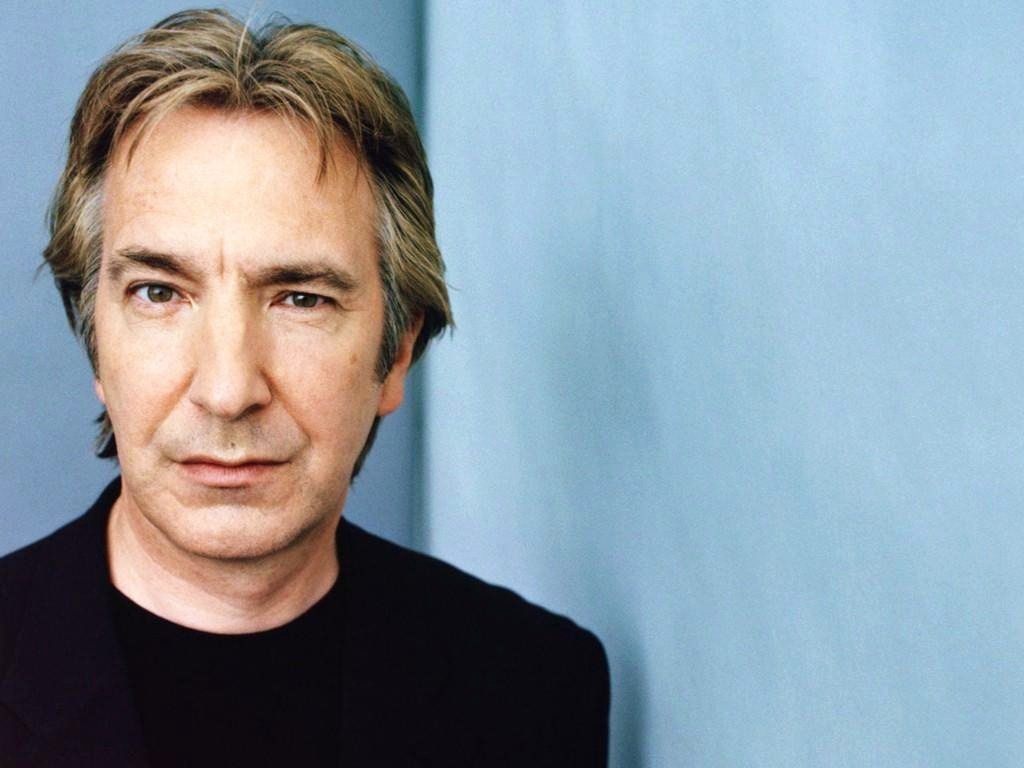
Perhaps the most remarkable thing about Alan Rickman, who died on January 14th at the age of 69, was just how beloved he was for an actor who built his career on playing deadpan, mellow, often cruel characters. Everything about his acting style - his stoic, composed demeanor, his double-bass voice - was instantly recognizable, and was iconic for audiences of multiple generations. His two most recognizable roles - Severus Snape in the Harry Potter saga and Hans Gruber in the original Die Hard - were defining characters of their respective decades, confusing audiences around the world at how endeared they were with these antagonists.
Rickman started his career on the stage, working with the Royal Shakespeare Company and getting a Tony nomination for the original Broadway production of Les Liaisons Dangereuses. It was the strength of this work that then got him cast in Die Hard as a charming and brilliant German terrorist, and the perfect foil to Bruce Willis’ John McClane. There have been four sequels to Die Hard in the 25 years since it came out, and a huge chunk of that has to be credited to Rickman’s work on the first film. A hero can only rise as high as his villain.
During the 90s, he took on a surprising range of roles: a romantic lead in Truly, Madly, Deeply, another intimidating villain in Robin Hood: Prince of Thieves, an honorable gentleman in Sense & Sensibility, and no less than the voice of God in Dogma. He capped it off with one of my favorite performances of his, Galaxy Quest, in 1999 - brilliantly parodying his own classical training as a Shakespearean actor slumming it on a Star Trek-esque TV show, with some of the greatest line readings ever committed to film.
Of course, his career jumped to a whole new level when he was cast as the mysterious, bitter Professor Snape in Harry Potter and the Sorcerer’s Stone in 2001. Spending the first few movies as a one-note, simple antagonist, Rickman as Snape grew along with the series, and over the following decade helped shade in, amplify, and humanize the complications present in J.K. Rowling’s character. When, at the end of Harry Potter and the Deathly Hallows: Part II in 2011, audiences were crying at his character’s fate, it became clear that Rickman had demonstrated to a whole generation of millennials a very important lesson, one that ensures his character and performance will remain vital and iconic for generations to come - that people aren’t all good or all bad, and are always more than what they seem on the surface.
It was this compassion for every character he played that defined Alan Rickman as an actor. When asked once why he always played villains, he reportedly replied, “I don’t play villains. I play very interesting people.” Rickman didn’t need to play knights in shining armor because he knew that humans are flawed and tangled and always in battle with some inner demon and that’s what makes us unique. The only way we would remember that is if we acknowledged it, if we put it out into the world, and see what would happen.
To quote him again: “An actor is an agent of change. A film, a piece of theater, a piece of music, or a book can make a difference. It can change the world.”
Rest in peace to one of the greatest agents of change of my life.
Happy trails, Alan Rickman.
